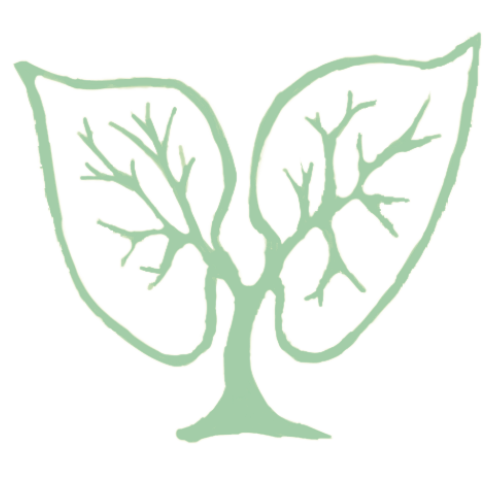Identify and Avoid Your Holiday Triggers
Each year, as the holiday season approaches, we may be making preparations to celebrate and spend time with our friends and family. This may bring happiness and joy! For some of us though, the holidays may be a lonely time or a difficult time and can bring stress and lung triggers.
Triggers are situations and things that can cause a lung attack, exacerbation, or worsening of breathing symptoms. When this happens, it can lead to inflammation, increased mucus, and a worsening of your lung function. Sometimes the lung function does not always return back to your baseline level. Therefore, it’s important to identify your triggers and try to avoid them.
Triggers can vary from person to person. What causes inflammation, "twitchy" airways, and breathing symptoms like cough, more mucus production and shortness of breath for you might not cause that in someone else. Be aware of what causes a change in your breathing so that you can avoid it and keep your lungs as healthy as possible. Let’s explore some common lung triggers and ways to avoid them so that you can breathe easy this holiday season.
Stress: Experiencing strong emotions (including happiness) can be a trigger. Pace yourself when it comes to holiday commitments and obligations, and be sure to get plenty of rest. Activate your calming nervous pathways with deep breathing and self care.
Strong odours and scents: The aromas of the holidays are everywhere! People’s homes, shopping malls, and even grocery stores. These are pleasant for some, and a trigger for others. Smells are tiny particles floating in the air which can cause airway irritation. We don’t always have control over our surroundings. Be selective about where you spend time, and avoid bringing new scents into your home over the holidays. Examples include: cleaning products, scented air fresheners and candles, perfumes, and even live Christmas trees.
Burning wood: Smoke from burning wood can surely irritate the airways. When heating a home with wood, be sure to burn as cleanly as possible. Visit this BC Lung web page for information about wood smoke and lung health. If possible, find alternate, long term solutions to heat your home, such as installing a heat pump.
Acid reflux: Acid reflux, also known as GERD (Gastro-Esophageal Reflux Disease), is when stomach acid makes its way up the esophagus and then down into the airways. Acid can irritate the airways and lead to inflammation and increased mucus production. There are medications that can help reduce stomach acid, talk to your Doctor or Pharmacist about options that might be right for you. Certain foods can cause an increase in acid reflux and are worth avoiding if this is a trigger for you. Examples of holiday foods that increase stomach acid include: food that is high in fat, acidic foods like tomatoes, citrus fruits, garlic, onions, and even (sadly) chocolate, fried foods, and alcohol. Consume these foods sparingly over the holidays, especially when there might be a lot of temptation.
Cold air: With winter setting in as the holidays approach, the air becomes cold. This can trigger a lung attack for sensitive airways. We all need to go outside, so use a scarf over your nose and mouth on cold days. The scarf can help to catch your warm and humid exhaled air. On your next breath in, you take back some of that heat and moisture from the scarf. Make sure to wash your scarves regularly.
Viral and bacterial infections: The holidays are a social time of year as we gather with friends and family to celebrate the occasion! This increased contact can expose us to bacteria and viruses. Stay up to date with your immunizations to help your body defend against these microscopic invaders. Speak with your doctor about an updated COVID-19 vaccine, yearly influenza vaccine, and the RSV vaccine. There are also shingles and pneumococcal vaccines available, which should be up to date. The other way to keep bacteria and viruses at bay is with frequent hand washing. Don’t under-estimate the importance of washing your hands to stay healthy. The COVID-19 pandemic taught us a lot about mask wearing to avoid airborne, droplet and contact infections; this will be a personal choice.
We hope this list of potential triggers helps you to understand why your lungs might “act up” during the holiday season. Be aware of, and avoid, your triggers so that you can enjoy time with your friends and family while keeping your breathing under control.
We have one more holiday tip to keep you breathing easy! Check your medications (inhalers and pills) to ensure they don’t expire and that you won’t need a refill during the holidays when drug stores and physician offices might be closed. If you are travelling also make sure that you have enough medications, and that you fill your action plan medications and take them with you as a 'just in case' option.
We wish you a happy and safe holiday season!

